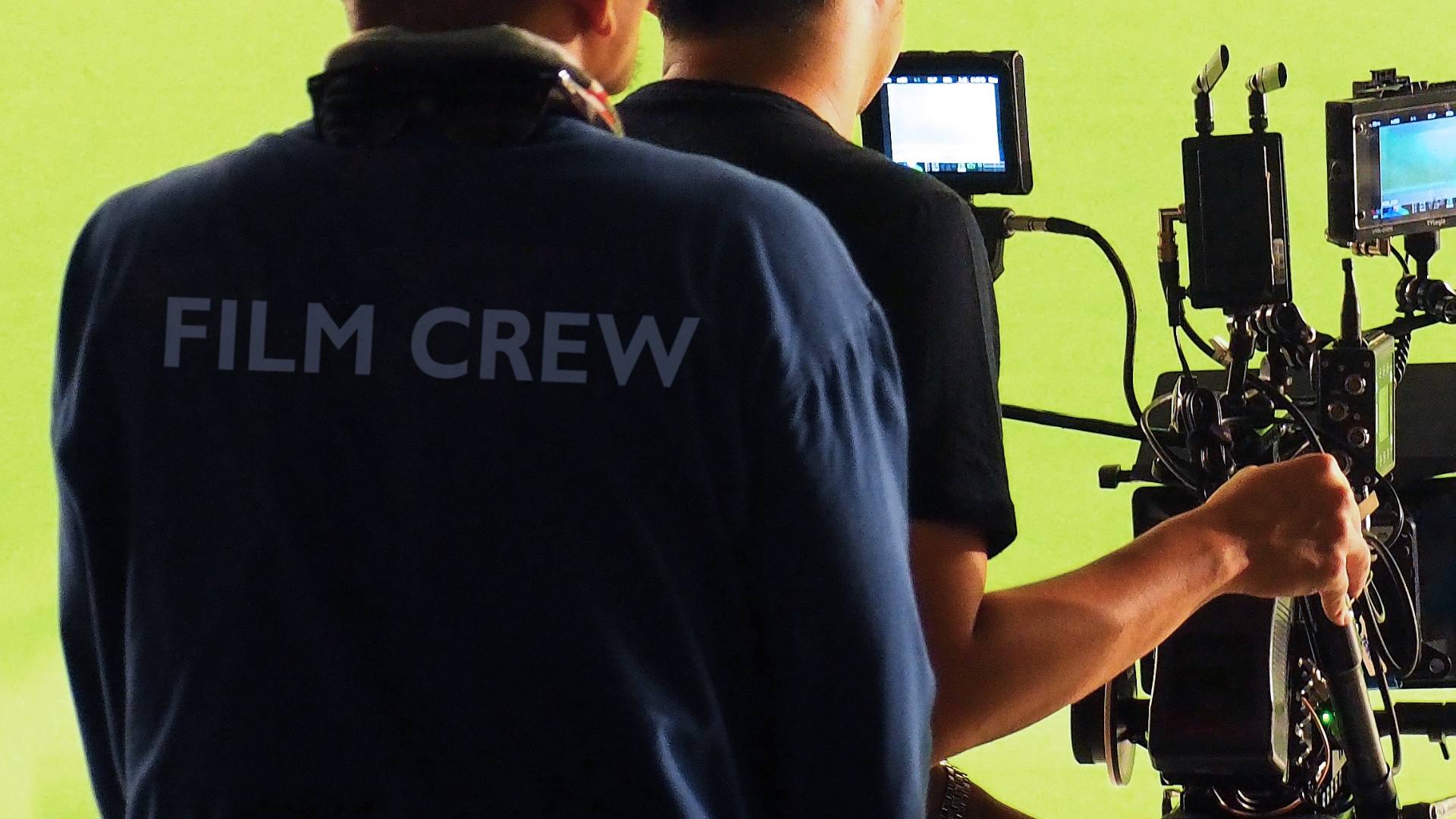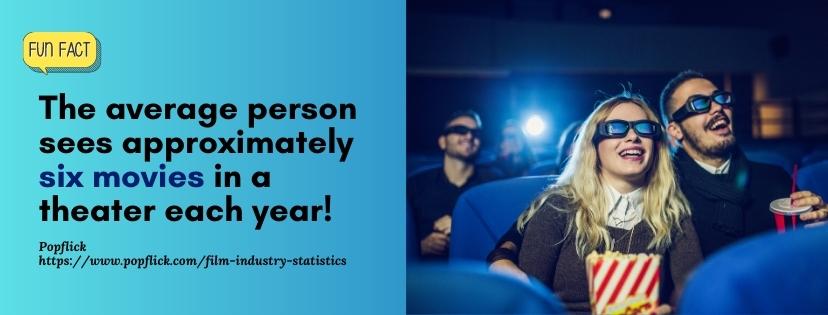Find Your Perfect School
The film industry is an exciting and ever-evolving field. Every year, billions of dollars are brought in by film entertainment in the U.S. alone. Creative and dynamic people can often thrive in this field. While it is widely known for acting and directing, the world of motion pictures goes beyond these career paths. It also involves screenwriting, editing, camera operation, and so much more.
Take a Look: Best Online Bachelor’s in Art and Design with a concentration in Multimedia Design
Based on the data gathered by the Bureau of Labor Statistics, the job outlook for film and video editors along with camera operators, is expected to grow by 12% between 2021 and 2031.
Quick Summarization
Students pursuing a career in the film industry may want to consider earning an online Bachelor’s in Art and Design – Film concentration. This will provide them with a wealth of opportunities to work in a creative and dynamic field, whether as a film director, screenwriter, videographer, film producer, or production assistant.
Quick audio summary:
Methodology
Online film programs are a significant investment, and if you’re looking for the best online degrees currently on offer in the country, then there’s no need to look any further. We gathered the country’s best programs!
The ten schools offering a film degree online that made it to this list were selected on the following criteria:
- Features online education/distance learning as one of its delivery formats, giving students flexibility with their time and also potentially translating to real-world savings.
- Features a curriculum that covers all the bases, from the fundamentals as well as advanced skills and sub-disciplines within the industry.
- Trains students on hard skills/technical skills, as well as soft skills like critical thinking, creative thinking, and a comprehensive understanding of the ins and outs of the film industry (and the television industry too).
- Degree programs that are developed and taught by faculty members who have industry experience, or continue to be active practitioners in the film and television industry.
- Offers affordable tuition rates, or in the case of for-profits, offering the most amount of support for their students that lets them make the most of what they pay for, such as starter kits for any necessary film-related equipment
- Provides opportunities for students to reduce the cost of their tuition, such as scholarships, grants, and other means, aside from federal financial aid eligibility.
Learn more about our ranking process by reading our Methodology.
10 Best Online Programs in Film and Media Studies
Arizona State University
Location: Tempe, Arizona
Arizona State University is one of the many higher learning institutions that offer a degree in film that is available online. Its Bachelor of Arts – Film and Media Studies program puts its focus on the critical analysis of film, gaming, television, and new media.
This online film degree is designed for students who wish to delve deep into the many forms of media and gain a comprehensive understanding of media and entertainment technologies through various perspectives, including historical, theoretical, and analytical.
Most importantly, students will get to discover the ways film and media shape one’s understanding of social and cultural life. Some of the skills students will acquire include media literacy skills, media analysis, writing, and so much more.
The film program is taught by experienced faculty members with demonstrated scholarly publication experience. The curriculum includes the following essential courses:
- Introduction to Film and Media Studies
- Television Studies
- Film and Media History
- Race & Gender in U.S. Media
Students will have plenty of opportunities to complete a variety of hands-on internships and activities that can enhance their knowledge and skills. This includes an annual trip to the Sundance Film Festival and the ASU Film Festival.
Academy of Art University
Location: San Francisco, California
The Bachelor of Fine Arts in Motion Pictures & Television offered at the Academy of Art University provides students with a solid foundation in the art and business of entertainment. The comprehensive curriculum covers subject areas such as The Art of Editing, Cinematic Storytelling, Cinematography 1, and so much more.
Students in this online bachelor program may choose a learning path to better help them reach their career goals. Their emphasis options include:
- Cinematography
- Directing
- Editing
- Producing
- Production Design
- Screenwriting
Students are expected to meet the requirements set for the degree, including acquiring general filmmaking skills such as collaborating effectively with multi-disciplinary teams and demonstrating a basic understanding of the film creation process. They should be able to apply their knowledge according to their chosen specialization. Each student must be able to produce an industry-standard demo reel and website to successfully earn the program.
The admission process into this degree program includes discussing the funding options for admitted students with the assistance of a financial aid representative. Students can take advantage of a personalized financial plan to help them meet their educational needs.
University of Arizona
Location: Tucson, Arizona
The University of Arizona offers top-ranked degree programs that are available online. One of them is the Bachelor of Arts in Film & Television. This 120-credit-hour program showcases a comprehensive curriculum that helps students prepare for creative, business, and academic careers in the field.
In this program, students will learn all about industry studies integrated with historical and critical analysis. Part of the curriculum is mastering the art and business of storytelling, covered by courses such as history and aesthetics, industry practices, and writing for film and television. The program culmination leads to a practicum. This is where students can apply the skills they acquired to produce a project aligning with their career interests.
The program’s curriculum includes the following courses:
- Intro to Film Production
- Intro to Film and TV Industries
- Film and TV History (Beginning-Middle 20th Century)
- Film and History (Mid-20th Century to the Present)
- Film & TV Aesthetics
These courses and more help ensure that students are able to build on their core skills, including media literacy, critical thinking, research, storytelling, textual analysis, visual communication, analytical thinking, creative thinking, and cultural understanding, among many others.
The University of Massachusetts Amherst
Location: Amherst, Massachusetts
The University of Massachusetts in Amherst has been offering flexible learning opportunities to students at all stages of life since 1971. One of their programs on offer is the Bachelor’s in Interdisciplinary Studies – Film & Media Studies. This fully online program prepares students to think critically in a rapidly evolving field.
Students have the option to tailor their degree with online courses such as digital narrative production, screenwriting, filmmaking, media literacy, film theory, film criticism, and film and TV Law, among many others. Their choice of concentration can be a mix of 100% online courses and optional blended and on-campus offerings, all designed to fit around one’s busy schedule.
The Film and Media concentration provides students with a strong theoretical foundation and applied skills essential in enhancing one’s career in a variety of professions within the field.
The Film and Media concentration includes the following courses in its curriculum:
- Culture Through Film
- Introduction to Film Studies
- Introduction to Media and Culture
- Media and Education
- Film and Literature
- African Film
- Making Short Films
This degree program offers an accelerated option. This allows students to bring in up to 105 credits from prior coursework, learning, and life and work experience to help them earn the degree faster, which means saving time and money.
Grand Canyon University
Location: Phoenix, Arizona
Grand Canyon University makes higher education available by offering various flexible learning options, including online learning, hybrid learning, and evening classes. One of the degree programs on offer is the online Bachelor of Arts (BA) in Digital Film – Video Production with a concentration in video production.
Students will gain solid foundational knowledge that will help them produce small-scale projects and major motion pictures alike. They will be able to get behind the camera and get an in-depth look a modern cinematography and narrative storytelling. They will also take a look at the business side of the cinema, covering the essentials of budgets, finance, and distribution.
The program requires a combination of creativity and technical expertise. Various skills can also be acquired, including professional communication skills, critical reasoning abilities, decision-making skills, and leadership qualities. Some of the courses included in the curriculum are:
- Audio Production for Cinema and Television
- Film Production Management
- Nonlinear Editing
- Cinematography
- Business for the Professional Creative
The program culminates into the Digital Production Capstone, which translates into the completion of a professional-level, short digital film.
University of Montana
Location: Missoula, Montana
The University of Montana offers a Bachelor of Fine Arts (BFA) in Media Arts that is offered on-campus, but can also be completed fully online. This degree program is both a study of the major areas and forms of media (including film) and of emerging digital technologies, which includes graphic arts, experience design, VR/augmented reality, and other forms of interactive media, which all have their applicability in various sectors of the film industry as well.
The BFA program has a total of 75 credit hours, with three possible Advising Tracks worth 45 credit hours in Digital Arts & Technology, Digital Filmmaking, or Sonic Arts. Advising tracks are not official programs and do not appear in relevant documents like student records, transcripts, or diplomas. Courses in the Digital Filmmaking advising track program include the following:
- Digital Imaging
- Film Editing
- Sound for Film
- Screenwriting
- Experimental Film
- Producing
- Cinematography
Students in the BFA degree program also get the chance to produce films both at the Missoula, Montana campus and in other locations throughout the state. Students also get the chance to qualify for any of a number of internship opportunities in the state, and enjoy the benefit of the close-knit community fostered by the university, which translates to real-world opportunities for their students, particularly after they earn their degree.
The Los Angeles Film School
Location: Los Angeles, California
The Los Angeles Film School offers a Bachelor of Science in Digital Filmmaking degree program, which is ideal not only for film production but also for broadcast television, mobile apps, and other forms of digital media. The degree is fully online and combines film theory with an experiential cooperative learning environment.
The degree program contains 120 credit hours in total and has a completion time of around 36 months. The program follows a sequential curriculum design, where students study one course at a time within a 4-week period. Online classes are done via the school’s own secure Learning Management System. The degree program’s curriculum includes the following courses:
- Visual Effects
- Digital Production Design
- Independent Filmmaking
- Location Scouting
- Documentary Production
- Screenwriting
- Producing
- Directing
Students who are accepted into the program are given a Student Techkit® that contains essential gear for filming and post-processing. Equipment may be subject to change, but the current kit includes a 4K camera, microphone, and lighting equipment, as well as a Macbook with access to the Adobe Creative Cloud software family.
Full Sail University
Location: Winter Park, Florida
Full Sail University offers a Bachelor’s in Digital Cinematography degree, a unique, storytelling-anchored program that transcends the various media that currently make up our modern-day information and entertainment landscape. The program contains 120 credit hours in total and can be completed in 108 weeks.
Taking off from the foundation of storytelling, students get to experience the typical production workflow, starting with scriptwriting and production planning, location shoots, all the way up to post-production and distribution. Like all of Full Sail’s degree programs, the Bachelor’s in Digital Cinematography is also designed as an accelerated program, letting students finish faster and start earning sooner.
The program’s curriculum includes the following courses, which cover major skillsets and production steps, and more:
Scriptwriting Techniques
- New Media
- Composition and Visual Design
- Electronic Field Production
- Film Criticism
- Producing
- Directing
Students accepted into the program get the benefits of Project Launchbox™, a program by Full Sail that provides students with starter tools and technology that helps them create their projects. Through the program, students’ files, coursework, and media creations are accessible 24.7. Project Launchbox™ also includes a Macbook Pro, a cinema-grade camera and lens, tripod and lighting kits, audio equipment, and the necessary software and peripherals to get their work done.
Miami International University of Art & Design
Location: Miami, Florida
The Miami International University of Art & Design offers a Bachelor of Fine Arts – Digital Filmmaking & Video Production, which features a well-rounded curriculum that gives students a solid grounding in storytelling, production, and the theoretical foundations of film and media.
The program spans 12 quarters long and contains 180 credit hours. Courses are offered online and are developed and taught by highly experienced industry professionals. The program’s curriculum includes courses on the following content areas and more:
- Foundations of Video and Audio
- Scriptwriting
- Producing & Directing
- Cinematography
- Editing
The program also includes an internship component that students are required to complete. This gives them a good chance to gain valuable hands-on experience while earning their degree. As part of their final requirements, students produce their own digital film as an application of all the key content areas of the coursework.
This Bachelor of Fine Arts degree program also includes an optional Introductory Technology Fee and a program-specific Technology Fee. The former covers the cost of an iPad, Apple Pencil, and a smart keyboard. In contrast, the Technology Fee for the program covers the cost of a 4K-capable camera, audio and lighting equipment, peripherals, as well as necessary downloadable software. Students can opt out of the fee and procure any necessary equipment themselves.
Nicholls State University
Location: Thibodaux, Louisiana
Nicholls State University offers an online Bachelor of Arts in English degree that is unique because it has Film Studies as one of its possible concentration areas. While this isn’t a bachelor’s degree program in Film, this program’s concentration area is designed to prepare students for roles in both the television and film industries as writers, broadcasters, editors, art directors, or film journalists, among other related careers in other industries.
The program includes the rudiments of the English language, as well as a wide range of electives that students can choose from, drawing from American, British, or World Literature, as well as other fiction and non-fiction genres.
Aside from the relevant Film Studies concentration area, other concentration areas in the program are:
- Creative Writing
- Literary Studies
- Writing and Rhetoric
- CYA Literature
On top of the standard federal financial aid/FAFSA, Nicholls State University also offers a range of First-Time Freshman and Continuing Student scholarships to eligible students and the Taylor Opportunities Program for Students (TOPS) for high school graduates of the state of Louisiana.

Key Roles and Responsibilities in Film Production Crews
Depending on the size of the production, Film Production crews (not including the cast and extras) can easily number into the hundreds, which is commonly the case for many Hollywood films.
Many of these roles and production needs are also found in smaller-budget/independent films, although these tend to find creative workarounds for some of them or do away with others.
Budget isn’t everything, though. As we’ve seen, many of the most notable/influential films were produced with small budgets and smaller crews. To pick a couple of examples, Psycho was filmed using a television crew, and The Blair Witch Project had a meager budget of $60,000.
Excluding the cast (main actors and extras), here are some roles in typical film production crews, which you find if you look through a film’s credits at the end:
Executive Producer
In the simplest terms, the Executive Producer makes the film happen, serves as the guiding hand as to its overall direction, and performs major supervisory roles throughout the production. Executive Producers typically secure funding for the film, attract investors, market the film, and oversee any legal aspects like copyrights.
Screenwriter
Screenwriters write special scripts called screenplays that set out the entirety of the film in written form, essentially the recipe or code for the film’s story progression, dialogue, and overall look. Some screenwriters write screenplays and then market them to producers, and some culturally significant films started as screenplays that lay dormant for years and almost didn’t see the light of day.
Director
The director’s main responsibility is putting together the film during the shooting/production and post-production stages. The director is perhaps the most prominent production member as the film we see is, in a way, their creative vision/interpretation crystallized, but the director is essentially only one of a number of individuals performing crucial roles that all add up to the final product we all get to enjoy.
Production Designer
One of the main jobs of the production designer is to interpret the script into a storyboard, which is the first visual interpretation of the screenplay (and looks a little bit like a comic book page), describing the shots and camera angles and serves as the guide for the rest of the cinematography.
Director of Photography
The Director of Photography works with the Director on the technical side of achieving a film’s required shots and the overall look. Decisions made include the choice of camera & camera system, lenses, lighting, and the type of film stock used for productions that are shot on physical film.
Sound Director
The sound director is the person who is in overall charge of a film’s soundscape, which includes the recording of the clean dialogue by actors on set and the choice of sound effects added in post-production. Sound Directors also work with composers for the film’s score or the music/soundtrack.
Editor
The editors take all the footage from the various scenes and sequences and put them together to create the film itself. Today’s workflow is digital, but it used to involve physically cutting film and attaching them together.
Foley
Foley artists are specialists that come in during a film’s post-production stage. Films typically employ pre-recorded or custom sound effects that enhance the overall soundscape, and foley artists are in charge of creating and adding these sound effects.
Steadicam operator
Steadicam is a proprietary brand of camera stabilizer systems (other similar/equal systems also exist). The Steadicam operator is in charge of physically handling the camera in complex shots and sequences, such as moving images. Steadicam systems are also employed in the television industry.
Colorist
A lot of the film’s visual impact relies on color, which determines the mood/atmosphere of each scene and the film as a whole. Colorists are post-production specialists that work on a film’s color and ensure visual continuity and consistency between shots.
Differences Between a Film Crew and a Television Crew
Typical film production has a number of key distinctions from television productions. Although these days we see the trend towards a larger Cinematic Universe that ties several films together, films are generally one-off productions, written and produced to be standalone pieces. After all, it is all about business investments! Any sequels or spinoff typically rely on the commercial success of the previous film.
Story-driven TV productions, meanwhile, are planned and written as episodes designed to be broadcast over several weeks or months, with episodes forming part of a single season. Other TV series, such as Sitcoms (Situational Comedy series), may not have a pre-planned number of episodes, instead having each episode function as a mini-story that can stand on its own. Aside from the overall writing direction, these share the most commonalities with films in terms of the production workflow and equipment used.
The biggest difference lies between films and live TV broadcasts. Film productions can control all the film’s ingredients and can take their time and do as many takes/repeats as they need to get the perfect shot and do any necessary tweaks in post-production.
Live TV broadcasts like concerts and sports events are one-shot deals where there is no room for error or technical difficulties and where there are fewer elements that are within the control of the TV production crew. As such, live broadcast productions focus on getting as much of the action as they can and bring as much of it to the TV viewer.
These productions typically employ several camera systems working simultaneously, including Steadicam systems, helicopter/drone-mounted cameras, and special broadcast cameras with powerful lenses. Modern live broadcasts also tend to use a large number of microphones scattered throughout the location to bring more nuanced live audio to the TV audience.

Common Online Courses in Bachelor’s in Film Programs
Film and Media History
Often an introduction to film history, this course covers specific periods, such as the beginning to the middle of the 20th century. Part of the lesson is the study of developments in motion picture history during the period, including the industrial, technological, and cultural aspects.
Film Cinematography
This course tackles the art and techniques of camera and lighting when it comes to the making of a motion picture film. Students will learn all about the technical aspects of film production, including the handling of the camera, lens, format, and lighting instruments.
Sound Design
Exploring the physical properties of sound, this course introduces students to the physics of audio. They will tackle how analog and digital audio differ, equipping students with a deeper understanding of how sound works.
Screenwriting
This essential course covers the structure of a screenplay and the application of the correct script form. Students may also learn how to analyze dramatic strategies in film and how they can actively engage in the different stages of original scriptwriting.
Visual Storytelling
Visual storytelling involves exploring concepts and practices of visual storytelling. This includes looking into the different aspects of visual storytelling, including aesthetics, representation, and visual ethics. Students are taught to operate a camera and capture audio accompanying the video.
Digital Post-production
In this course, students get to delve into the area of postproduction and editing practice. This includes being introduced to advanced editing software and techniques along with postproduction pathways and workflows. They will also study interesting aspects of postproduction, like digital compression and color grading techniques.
Cinema Directing
This course teaches students how to turn an idea into a scene and how the scenes come together to create a compelling story. As a complex art form, cinema directing requires students to employ both vision and skill. This is where they learn how to set up lighting, work with actors, record the sound, and edit the film. It encompasses the different aspects of film production, often culminating in students directing their own short film projects.
Acting for the Camera
True to its name, this course teaches students about acting in front of the camera by employing proven techniques. Students are expected to explore the principles and acquire the necessary skills to work in the medium of film.
Essential Skills for Film Professionals
Communication
An integral skill in every industry, communication is just as important in film production. Filmmakers often work with a variety of people, including the film crew and cast members, compelling them to communicate their ideas and execute them effectively. This allows them to bring their vision to life and tell a story. Each role in the film needs to understand its part, whether it is the screenwriter, cinematographer, or editor.
Multitasking
Many positions in the film industry assume different tasks all at once. It is important that film professionals can multitask. A director is expected to juggle many responsibilities all at once as they try to bring their ideas to life. This requires the essential skill of multitasking, allowing them to switch from one task to another.
Technological Expertise
Filmmakers are often technically astute. They face various tools and technologies that are integral to producing a film. This includes knowing the different forms of camera shots and angles. A good filmmaker will know how to achieve a great shot, often employing various techniques that have to do with lighting, staging, framing, and more. They may also need to learn all about special effects, sound design, and the various practices involved in the post-production process.
Creativity
Creativity is imperative in any film production. Without this, the story won’t be able to come to life quite effectively. Filmmakers are expected to employ their creative skills as they transform their vision into successful storytelling, with all the elements coming together seamlessly. Everyone often contributes their creative ideas to the filmmaking process, no matter what role they play. In fact, it is safe to say that creativity is the very foundation of the making of a film.
Storytelling
Along with creativity, storytelling makes up the core of the filmmaking process. People involved in this dynamic field will need to have the flare for visual and written storytelling. While not everyone will be writing scripts and directing the whole production, each one will need to be able to understand, draft, evaluate, and analyze the provided stories, such as the script and vision board.
Leadership
The film production process is often divided between stages. There will be different teams handling different responsibilities. Many filmmakers need to have leadership skills to be able to manage the crew and other important roles in the production to ensure that the process is smooth sailing.
Additional Info: Best Online Bachelor’s in Business Management with a Concentration in Digital Marketing

Frequently Asked Questions
How long does it take to complete an undergraduate Bachelor’s degree with a Film concentration?
Typically, an online film degree will take four years to complete. However, the length of time to earn this Liberal Arts degree can largely depend on whether students are enrolled full-time or part-time.
Some film degree programs have a rigorous curriculum that often includes completing a capstone project or producing a film project, which understandably takes more time to accomplish. There are also universities that offer accelerated options where prior coursework and relevant work experience are considered for added credits. This cuts down the time it takes for online students to finish their program, allowing them to save time and money in the process.
What are the most common admission requirements for Bachelor’s degree programs in Film and Media Studies?
University admission requirements often vary but often share the same criteria. Most of the time, students are required to submit their high school transcript along with ACT and SAT scores. There are schools that need students to meet certain GPA requirements. Transfer students will need to provide their post-secondary transcripts that meet the transfer credit requirements. This is often in the form of an unweighted GPA.
It is important for prospective students to verify the admission requirements directly from the school of their choice to ensure that they have a smooth sailing admission process.
Key Points to Ponder
- A bachelor’s degree in Film takes students through the fundamentals and advanced skills required in major sub-disciplines within the film industry, giving them a chance to discover what areas they are passionate about.
- Many technical skills and processes in the film industry are also applicable to and shared by the television industry.
- While a film degree gives a comprehensive view, many other media and creative degrees are also viable entry points into the film industry.
Check this out, too: The 3 Best Film Schools in New York











